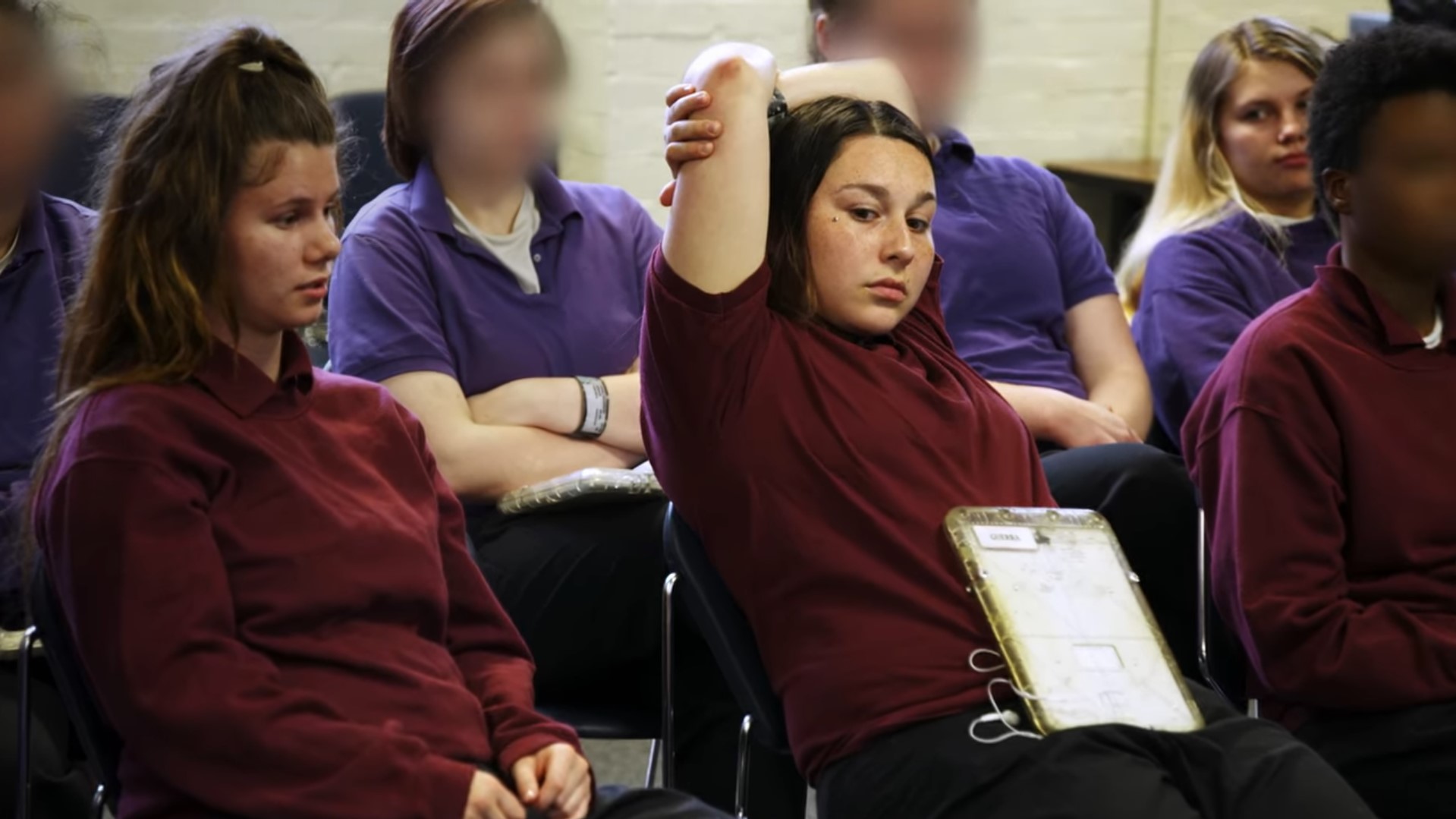Girls Incarcerated is a gripping docuseries that delves into the lives of young women navigating the challenges of juvenile detention. This series sheds light on the struggles, resilience, and transformation of its cast members. By exploring their journeys, we gain a deeper understanding of the complexities surrounding the juvenile justice system and the impact it has on young lives.
The series has captured the attention of audiences worldwide, offering an unfiltered look into the realities faced by girls within the juvenile detention system. Through compelling storytelling and authentic portrayals, Girls Incarcerated highlights the importance of rehabilitation, empathy, and systemic change.
In this article, we will explore the cast of Girls Incarcerated, their backgrounds, and the significance of their stories. We will also examine how the series addresses critical issues related to juvenile justice and provides a platform for meaningful conversations about reform and support for young offenders.
Read also:Ava Elise The Rising Star In The World Of Entertainment
Table of Contents
- Biography of the Cast
- Introduction to the Girls Incarcerated Cast
- The Juvenile Justice System
- Real-Life Stories of the Cast
- Impact of Detention on Young Women
- Rehabilitation Efforts and Programs
- Mental Health Challenges Faced by the Cast
- Support Systems for Incarcerated Youth
- Future Perspectives and Opportunities
- Conclusion
Biography of the Cast
Overview of the Girls Incarcerated Cast
The Girls Incarcerated cast comprises real-life individuals who have experienced the juvenile justice system firsthand. Each member brings a unique perspective and story to the series, offering viewers insight into the challenges faced by young women in detention.
Cast Member Profiles
Below is a brief overview of the cast members featured in the series:
| Name | Age | Reason for Incarceration | Current Status |
|---|---|---|---|
| Ashley | 17 | Theft | Released, pursuing education |
| Marisol | 16 | Drug possession | In rehabilitation program |
| Jasmine | 18 | Assault | On probation |
Introduction to the Girls Incarcerated Cast
The cast of Girls Incarcerated represents a diverse group of young women from various backgrounds. Their stories highlight the systemic issues that contribute to juvenile delinquency and the need for comprehensive support systems.
Key Themes in the Series
- Systemic inequalities affecting young women
- The importance of rehabilitation over punishment
- Breaking the cycle of incarceration
The Juvenile Justice System
The juvenile justice system plays a crucial role in shaping the lives of young offenders. Understanding its structure and challenges is essential to addressing the needs of incarcerated youth.
Key Statistics
According to the National Center for Juvenile Justice, approximately 1 million juveniles are arrested annually in the United States. Girls make up a growing percentage of this population, highlighting the need for gender-specific interventions.
Real-Life Stories of the Cast
Each member of the Girls Incarcerated cast has a unique story that reflects the complexities of their experiences. Through their narratives, viewers gain insight into the factors that contribute to juvenile delinquency and the potential for positive change.
Read also:Chalongrat Novsamrong The Inspiring Journey Of A Remarkable Figure
Challenges Faced by the Cast
- Poverty and lack of resources
- Family dysfunction and trauma
- Substance abuse and addiction
Impact of Detention on Young Women
Incarceration can have lasting effects on young women, both emotionally and psychologically. Understanding these impacts is vital to developing effective rehabilitation strategies.
Psychological Effects
Research from the American Psychological Association indicates that detention can lead to increased anxiety, depression, and post-traumatic stress disorder (PTSD) among young women. Providing mental health support is crucial for their recovery.
Rehabilitation Efforts and Programs
Rehabilitation programs play a vital role in helping young women reintegrate into society. These initiatives focus on education, skill development, and emotional support.
Types of Programs
- Vocational training
- Mentorship programs
- Counseling services
Mental Health Challenges Faced by the Cast
Mental health is a significant concern for incarcerated youth. Addressing these challenges requires a comprehensive approach that includes access to therapy and counseling services.
Importance of Mental Health Support
A study by the National Institute of Mental Health highlights the importance of mental health services in juvenile detention centers. Providing these resources can significantly improve outcomes for young women post-release.
Support Systems for Incarcerated Youth
Building strong support systems is essential for the successful reintegration of incarcerated youth into society. This includes family involvement, community support, and access to educational opportunities.
Role of Community Organizations
- Advocacy groups
- Non-profit organizations
- Local government initiatives
Future Perspectives and Opportunities
Looking ahead, there are numerous opportunities for reform and improvement within the juvenile justice system. By focusing on rehabilitation and support, we can create a brighter future for young women like those featured in Girls Incarcerated.
Potential Reforms
- Expanding access to education and vocational training
- Implementing restorative justice practices
- Increasing funding for mental health services
Conclusion
Girls Incarcerated offers a powerful glimpse into the lives of young women navigating the juvenile justice system. Through the stories of its cast, the series highlights the importance of empathy, understanding, and systemic change. By addressing the challenges faced by incarcerated youth and advocating for reform, we can create a more equitable and supportive environment for all.
We encourage you to share your thoughts and experiences in the comments section below. Additionally, explore other articles on our site to learn more about juvenile justice reform and related topics. Together, we can make a difference in the lives of young women and their communities.


